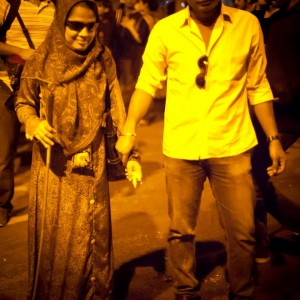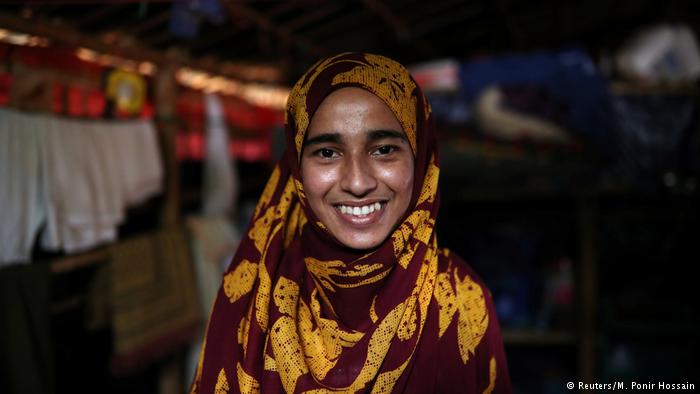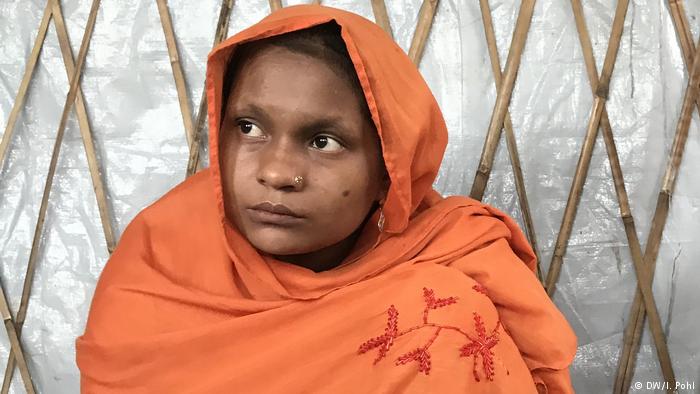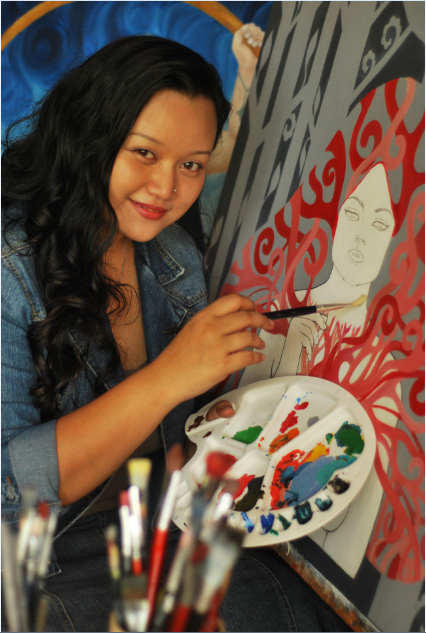Women’s day special: Bangladesh
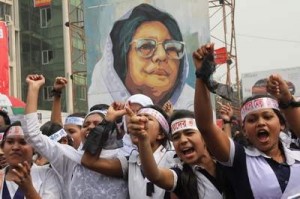
Young female protestors at Shahbag shout slogans. A poster of Jahanara Imam can be seen in the background
Copyright: The Daily Star
Women in Bangladesh are a force to be reckoned with. It all began 42 years ago when Jahanara Imam’s elder son, Shafi Imam Rumi, joined the Mukti Bahini (pro- Bangladeshi independence group) and fought against Pakistan’s army. During the entire nine months of the war of liberation. Jahanara wrote what she felt and saw in her diary. This went on to become one of the most important publications about the war. It was called ‘Ekatturer Dinguli’ or ‘Of blood and fire.’
British author Philip Hensher described his feelings in the Guardian after he read the English translation, ‘Of Blood and Fire’ is an extraordinarily powerful and affecting book. Just as the Holocaust needed a ‘Diary of Anne Frank’ that brought the numbing total of deaths down to an individual, human case, so the Bangladeshi massacres are brought down to the feelings of a mother for her son.”
Jahanara Imam lost her son to the war and decided to fight against war criminals and bring them to justice. After Ghulam Azam (a war criminal currently under trial), was elected the Amir of Jamaat-e-Islami in 1991, Imam and other prominent pro-liberation war activists founded the ‘Ghatak-Dalal Nirmul Committee’ to bring the killers and collaborators of the Pakistani Army to justice. The committee called for the trial of war criminals, who had been actively involved in the genocide in 1971. The Ghatak-Dalal Nirmul Committee set up mock trials, known as ‘Gono-adalot’ (Court of the People) in Dhaka in March 1992 and ‘sentenced’ the war criminals. Jahanara is famously known as ‘Shahid Janani’ (mother of a martyr). Shahbagh Movement, which has turned one month old, is reviving that spirit and making it popular.
The movement has already attained many successes and one of the major achievements is the female participation: Lucky Akhter, for instance. If Imran Sarkar is the face of the Shahbag Movement, Lucky is the voice. She has been keeping it alive with her inspiring slogans. Thousands of protesters raise their voices with Lucky. ‘Joy Bangla’ (long live Bangla) is the most favorite and popular among 500 slogans she chants. She has inspired women from all over the country to come and sit on the streets throughout the night, which was unheard of in Bangladesh until now. Women from all walks of life participated in the movement. Some came with their families, some in groups, and a few even decided to come on their own.
Ipshita, who is only 8 years old, learnt the slogans so well that she at times replaces Lucky and hurls slogans for more than an hour at a stretch. I recall two very moving cases. One woman, on the main stage at the protest, complained against their father who was a collaborator of Pakistan Army, helping them in their brutality, and wanted him punished. Another was a wife of a Shibir (student wing of Jamaat-E-Islami) cadre, who apparently abandoned her husband and joined the movement.
Women in Bangladesh have always played a significant role in major uprisings and have paid a heavy price. In 1971, almost two hundred thousand women were raped, female writers, poets and journalists were abducted and killed. Even this time, women in Bangladesh have not shied from their responsibilities. Some came with water and food to help the protesters, sang patriotic songs, chanted slogans, lighted candles and put their lives in danger for a greater cause.
The women in Bangladesh, bold, passionate and considerate, are a force to be reckoned with. The success of Shahbag Movement is yet to be determined but it has certainly changed Bangladesh forever.
Author: Paula Aziz
Editor: Manasi Gopalakrishnan



